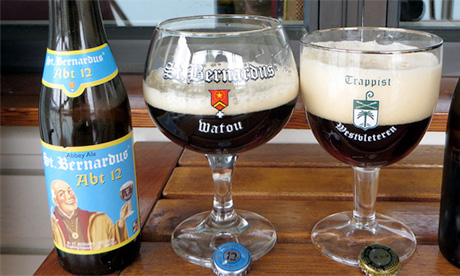Lent kick off last week, launching a season of penance and spiritual reflection during which time Catholics the world over immerse themselves in a 40-day period of abstinence and fasting.
In our time, some of the most popular luxuries to give up include social media, sweets, electronic devices, and caffeine.
Some of the more die-hard types may decide to keep the Friday abstinence from meat throughout the entire season.
The monks of the 17th century, however, had a much more hardcore approach: a liquid diet.
In the 1600s, the Paulaner Monks of Southern Italy relocated to the Cloister Neudeck ob der Au, in Bavaria.
The strict order required the brothers to refrain from all solid foods for the entire 40 days of Lent, which naturally brought about questions of how the order would maintain proper nutrition throughout the season.
Turning to what they knew, they concluded that beer, or “liquid bread” as they called it, could sustain them.
The Paulaners brewed a special, unusually strong beer that would provide high levels carbohydrates and nutrients to fight off malnutrition.
This early doppelbock-style beer eventually became the original product of Paulaner brewery, founded in 1634, under the name “Salvator,” named after “Sankt Vater,” which CNA reports can be roughly translated as “Holy Father beer.”
Vine Pair explains that the monks, proud of their work, became worried that the brew was too delicious to count as a Lenten sacrifice.
Hoping for a conclusive ruling, the Paulaner monks sought guidance from Rome and shipped a barrel of their best to the pope, who could determine if the beer was appropriate fasting fare.
In a bit of a twist, during the long trip from Bavaria to Rome, the beer spoiled.
When the pope tasted it, he deemed it so foul that consuming it was considered a “sacrifice unto itself.”
He gave the monks the go-ahead and they enjoyed their liquid Lent with clear consciences. Continue reading
Additional readingNews category: Analysis and Comment.




